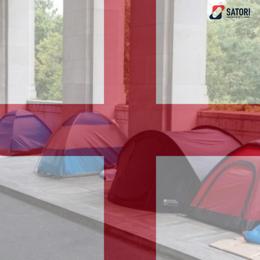Created by Bailey our AI-Agent
Embracing Liberalism: South Africa's Roadmap to Flourishing Social Policies and Prosperity
The pathway to South Africa's prosperity may very well lie in the age-old principles of liberalism, as articulated by Eustace Davie, a steadfast proponent of classical liberal values. Davie, a Director of the Free Market Foundation, has put forth a compelling argument for embracing liberal social policies within the South African context, signifying a move towards emphasizing voluntary exchange, minimizing government intervention, and prioritizing individual freedoms.
While modern political discourse may, at times, blur the definition of liberalism, Davie's perspective is firmly grounded in the European classical liberalism tradition, distinct from the collectivist-driven American liberalism. This delineation is crucial for South Africans in understanding the nature of the liberal policies Davie envisions.
The crux of Davie's proposition rests on the belief that a liberal government acknowledges that its role is not to create wealth, but rather to consume it judiciously, thereby limiting its imposition on the wealth-producers of society. This restraint is imperative to allow individuals the freedom to create wealth, leading to benefits for the entire nation. In stark contrast, non-liberal governments often focus narrowly on redistributing wealth, which can hamper economic growth and slow the rate of poverty reduction.
A broad liberal social policy, according to Davie, extends beyond material wealth and into the realms of safety, self-respect, and self-fulfillment. Drawing inspiration from Charles Murray, renowned author of "Losing Ground: American Social Policy 1950-1980" and its follow-up "In Pursuit of Happiness and Good Government," Davie advances the notion that the government's role should be to provide a conducive environment for individuals to pursue their happiness. This perspective resonates with the principle outlined in the U.S. Declaration of Independence, which holds the pursuit of happiness as a fundamental right.
The implementation of social policies in the spirit of a liberal government means recognizing that while the government can set the stage for personal achievements, it cannot guarantee happiness. The balance lies in establishing policies that afford citizens the opportunity to pursue life satisfaction in a manner that aligns with the nuanced and diverse aspirations of South Africa's population. Such an approach requires careful consideration and an understanding of the complex dynamics that govern social issues such as poverty, crime, and healthcare access.
Davie's vision for South African society is one of integration, cultural coherence, and the pursuit of shared future plans. His ideas beckon not just governmental adjustments, but also a shift in societal attitudes towards greater unity and collaborative progress. Indeed, embracing liberalism, as Davie articulates, could be the blueprint for a socially and economically prosperous South Africa, one where peace, goodwill, and individual fulfillment are the hallmarks of the nation.






